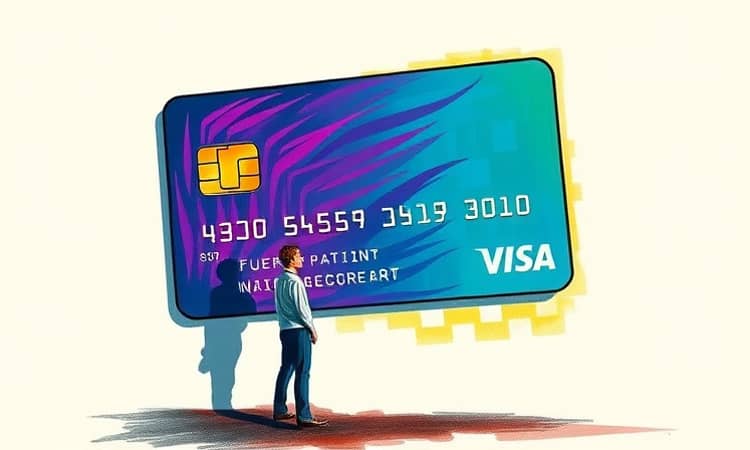Co-signing a credit card or loan for a friend or family member may seem like an act of trust and support. Yet beneath the surface lies a minefield of financial, legal, and emotional hazards that can haunt you for years. This detailed guide walks you through what co-signing truly entails, the potential pitfalls you may face, and the steps you can take to protect your credit, finances, and relationships before making such a critical decision.
What does co-signing really mean?
When you co-sign, you become fully and legally responsible for the debt. The account appears on your credit report just as it does on the primary borrower’s, and every action they take reflects on your record. Despite being equal stakeholders, the primary borrower retains full control over spending and payments.
Your role is more than symbolic. Lenders rely on your creditworthiness as a guarantee. If the borrower defaults, they have the right to pursue you directly for the balance, including fees and accrued interest. This can happen without any requirement that the primary borrower fails first.
Financial and legal dangers
Assuming liability goes far beyond goodwill. You may put your own finances at risk in several ways:
- Immediate debt obligation: You’re obligated for the full balance the moment you co-sign, regardless of who uses the card.
- Credit score impairment: Late or missed payments by the borrower can damage your credit score and linger on your report for up to seven years.
- Reduced borrowing power: The added debt increases your debt-to-income ratio, making it harder to qualify for future loans or favorable interest rates.
- Legal action possibilities: Collection agencies can sue you, garnish wages, or place liens on your property to recover unpaid balances.
Consider the case of Jason, who co-signed for his daughter’s student loan. When she faced unemployment, missed payments led the lender to file a lawsuit against both parties. Jason ended up tapping into his retirement savings to settle the debt and repair his credit.
Tax and legal caveats
Beyond direct repayment, co-signing can carry hidden tax and legal consequences. In some cases, canceled or forgiven debt may be treated as taxable income. While the IRS often assigns this obligation to the borrower, disputes can arise if the co-signer benefited from the loan.
Interest paid on certain co-signed debts, such as student loans, may be deductible, but eligibility depends on who claims the borrower as a dependent and other factors. Consult a tax professional to understand how co-signing can affect your annual filings.
Emotional costs and relationship strain
Money matters often intertwine with emotions. When you co-sign for someone you care about, you place both your finances and your relationship on the line. Trust can quickly erode if payments are missed or if spending spirals out of control.
Over a quarter of co-signers report that this arrangement damaged their personal relationships. Attempting to collect overdue payments may lead to guilt, resentment, or awkward confrontations. In some cases, families have chosen to cut ties rather than navigate ongoing financial tension.
Behavioral risks and lack of control
Part of the co-signing dilemma is the loss of oversight. You remain fully liable, yet you have no direct control over how or when the borrower uses the credit. This can lead to reckless spending or unexpected balances that you never agreed to cover.
Even when payments are current, a co-signed account can stunt your financial growth. A hard credit inquiry during the application process may reduce your score temporarily, and the new debt can restrict your access to additional credit while you remain tied to someone else’s financial behavior.
Key statistics to consider
These figures demonstrate how common co-signing can lead to tangible consequences. Nearly one in three co-signers experiences a credit score decline, and many end up bearing the financial burden alone.
Mitigating the risks
If you decide to move forward with co-signing, take proactive steps to protect yourself and the borrower:
- Vet the applicant’s credit history and spending habits thoroughly before agreeing.
- Set clear guidelines for usage, such as spending limits and payment deadlines.
- Monitor account activity regularly to detect early warning signs of trouble.
- Draft a written agreement outlining each party’s responsibilities and consequences for missed payments.
By establishing boundaries and maintaining transparency, you can reduce the likelihood of surprises and legal entanglements.
Even with precautions, circumstances can change. Keep lines of communication open, and if financial stress emerges, consider talking to the lender about a co-signer release. Many lenders allow removal of a co-signer once the primary borrower meets certain payment requirements.
In more complex situations, consulting a financial advisor or attorney can help negotiate terms or restructure the debt. Proactive intervention often prevents problems from escalating into costly legal battles and long-term credit damage.
Safer alternatives to co-signing
You don’t have to co-sign to help someone build or improve their credit. Consider these lower-risk options:
- Secured credit cards that require a refundable deposit, limiting your exposure.
- Authorized user status, which allows the borrower to benefit from your good credit without legal liability.
- Credit-builder loans, where funds are held in a secured account until the loan is repaid.
Each approach offers a pathway to creditworthiness without placing your own credit and finances fully at risk. By choosing an alternative, you can support a loved one’s financial goals while safeguarding your own future.
Final thoughts
Co-signing can feel like an act of generosity, but it carries significant financial risk and emotional strain. Before making a decision, weigh the potential consequences and explore alternatives that protect both parties.
Open communication, careful planning, and professional advice can turn a risky commitment into a structured agreement. Your support should empower the borrower, not jeopardize your own future.














